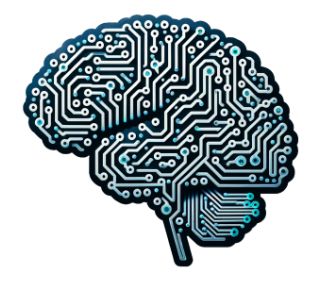- within International Law, Law Department Performance and Consumer Protection topic(s)
Artificial intelligence ("AI") is one of the most widely-discussed topics in the world right now and will continue to remain relevant in the year ahead, as new developments and case law start to unfold. This article looks at the topical issue relating to the co-existence of AI and copyright in the context of recent developments in the United Kingdom ("UK").

AI and the intersection with copyright
The issue of how AI and copyright can co-exist is receiving considerable scrutiny in various parts of the world, with the UK being no exception. Given that South Africa often follows where the UK leads, it is useful for us to see how things are unfolding there.
The UK Government recently launched a public consultation aimed at achieving the following:
'Reforming copyright law to balance AI innovation with creators' rights'.
The consultation is aimed at finding a middle ground between the rights holders of copyright and AI developers in the context of the use of their copyright materials in training AI models. There is an acknowledgment that copyright must be protected on the one hand and on the other hand, a need to adopt and develop AI. Both are critical to the wider economy. The question, however, is how this balance is to be achieved. The suggestion in the UK is to provide an AI framework, which enables copyright holders to license and be paid for the use of their works in AI training, however, with certain "exceptions" to permit the use of copyright materials by AI developers on a "clear legal basis", which may need to be legislated. This will also require greater collaboration between the creative and AI industries to develop systems that enable control and licensing of copyright works while still driving AI innovation and adoption.
AI model training – the copyright concern!
AI model training has been referred to as the 'process of teaching an AI system to respond accurately to user inputs – it involves feeding curated data to algorithms, which adjust themselves based on feedback', using text and data mining ("TDM") - (being the use of automated techniques to analyse large amounts of information).
Using works that enjoy copyright protection for TDM in the context of AI model training is a contentious issue in most jurisdictions, which is evident in the number of lawsuits arising in this regard. In an article, the law firm Simmons & Simmons says this:
'AI developers, particularly those of larger foundation models, often require access to vast quantities of training data from works, which may be protected by copyright. Unless TDM is exempt from copyright infringement, model training may involve reproducing copyright works without permission which may infringe third parties' copyright'
The proposed TDM exception – 'opting out'
There is much talk of a new TDM exception which will improve access to content (including copyrighted content) by AI developers.
Simmons & Simmons state that a 'new exception for TDM in the UK would allow AI developers in the UK to use copyright materials for training purposes, provided that rightsholders have not "reserved" or "opted-out" their rights. The proposed TDM exception would align the UK's approach with the EU.'
The thinking is that the new TDM exception will include measures 'to facilitate the licensing of training data, which will become relevant if/when rightsholders have opted out of TDM'. There will be 'transparency requirements for AI developers to disclose the training data they have used'.
More on the new TDM exception
Our understanding is that:
- The new TDM exception will apply in respect of both commercial and non-commercial purposes.
- The exception will only apply where the user has lawful access to the relevant works - this would include works that have been made available freely on the internet and those accessed without breaching any applicable contractual terms (including any paywall).
- The exception will only apply where the rights-holder has not reserved its rights in relation to the mined work.
Transparency
The new TDM exception will be underpinned by transparency requirements for AI developers, requiring them to disclose to rights-holders what training data they have used, thereby aligning it with the UK with the EU's approach under the Directive on Copyright in the Digital Single Market 2019/790.
TDM exception with opt-out
So far, only the EU has introduced a TDM exception combined with an opt-out mechanism for rights holders. This EU route is referred to by the UK Government as a 'useful precedent'. The UK Government is also keen to align trade rules so far as possible with the EU.
Turbocharging AI development
The UK Government clearly does not wish to lag behind in AI development.
The Simmons & Simmons article suggests that 'what is clear from the Government's AI Opportunities Action Plan is that the Government is keen to turbocharge investment in AI development in the UK and it is concerned not to fall behind other countries by maintaining a restrictive approach to copyright law.'
But what about legal rights?
There are many who think that investment is being 'turbocharged' at the expense of legal rights. In a LinkedIn posting, a certain Graham Lovelace speaks of his 'fury, dismay and suspicion at a UK government-commissioned AI action plan calling for an overhaul of copyright laws that will leave AI developers free to train their generative models on creators' content unless rights holders opt out'.
Meanwhile, artists Paul McCartney, Kate Bush and Julianne Moore have publicly supported the creatives. And a British MP had this to say in parliament – 'the government has fully drunk the Kool Aid on AI.'
In conclusion, IP is at the forefront of AI development and it is important for us to keep a close watch on developments in this space for the benefit of our clients, who will undoubtedly be impacted by it.
A quick summary for the benefit of those who are now scratching their heads:
- AI developers need to access lots of training data - they do this using text and data mining (TDM).
- The training data may enjoy copyright.
- Unless TDM is exempt from copyright infringement, AI models may infringe copyright.
The content of this article is intended to provide a general guide to the subject matter. Specialist advice should be sought about your specific circumstances.


